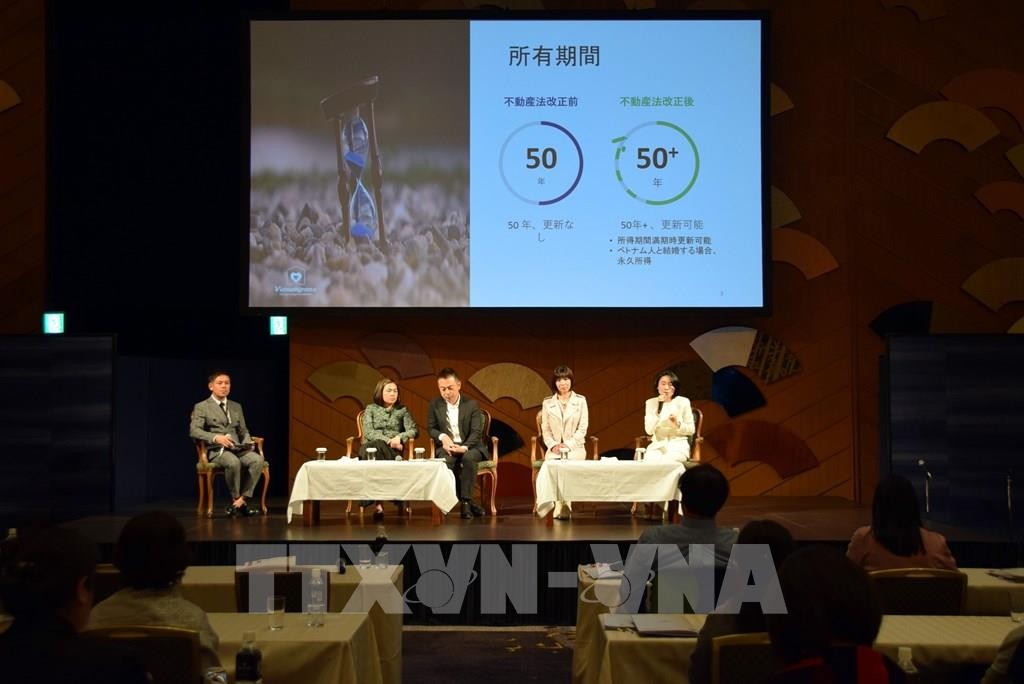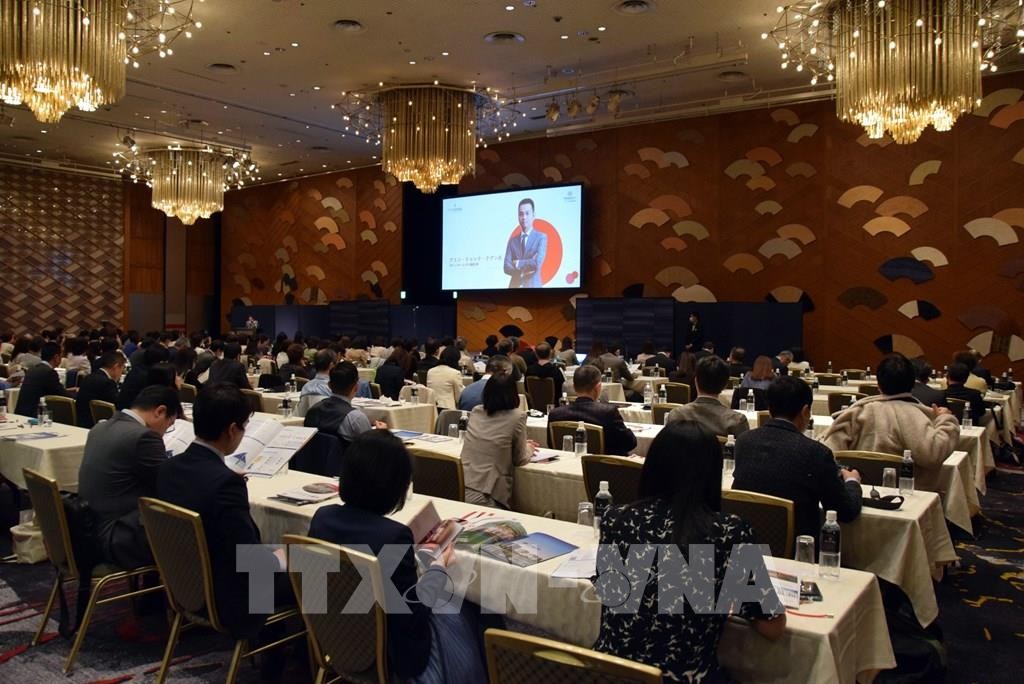 |
| Illustrative image. Photo: cenhomes.vn |
180 Japanese business representatives and investors attended the Vietnam Real Estate Seminar held on April 1 in Tokyo. The event was co-hosted by Vinhomes Joint Stock Company and VietnamGroove Real Estate Business Investment Joint Stock Company, as reported by VOV.
The event seeks to assist Japanese investors in gaining a comprehensive understanding of and gaining insight into the Vietnamese property market. It will enable them to make more informed decisions when investing in the sector. Additionally, they will gain knowledge of the current market conditions and regulations, as well as the potential opportunities and risks associated with investing in the Vietnamese real estate market.
Upon addressing the event, Counselor Tran Thi Thu Thin, representative of the Vietnamese Embassy in Japan, enthusiastically welcomed the fact that Vinhomes and Vingroup have returned to the Japanese market after three years of being negatively impacted by the Covid-19 pandemic. Simultaneously, she expressed her hopes that this seminar will provide Japanese businesses and investors with a great opportunity to gain a better understanding of the investment environment in Vietnam, as well as offering potential collaboration opportunities with Vinhomes.
The Vietnamese Government and the Vietnamese Embassy in Japan are committed to providing favourable conditions for Japanese businesses to make successful, long-term and sustainable investments in Vietnam, thus contributing to deepening the Vietnam-Japan relationship. “Thin said,”
 |
| An overview of the seminar. Photo:VNA |
Nguyen Duc Quang, Deputy General Director of Vinhomes, noted that 2022 was a challenging year for the Vietnamese real estate sector. Nevertheless, Vinhomes still managed to establish unprecedented sales records. By the final quarter of that year, they had become the country’s top real estate developer, occupying 27% of the market share.
“Vinhomes will continue to develop megacities of thousands or tens of thousands of hectares, with a world-class scale and caliber, pioneering model cities in the green-smart era, and being proud to place Vietnam on the worldwide urban map,” Quang stressed.
At the seminar, Japanese investors highly lauded the tremendous potential of the Vietnamese real estate market, expressing admiration for its potential for growth.
Nobuaki Higashi, the head of the Overseas Sales Department at Nomura Real Estate Development Co., Ltd., recently commented on the company’s assessment of the potential of the nation’s real estate market. He noted that the country had experienced a remarkably high economic growth rate of 8.2% in 2022 and was currently enjoying the benefits of a golden population structure.
Therefore, the Vietnamese economy in general and the real estate market in particular will continue to grow strongly moving forward, he added.
According to Higashi, Nomura has invested in eight distinct projects across Vietnam, for a combined total of 24,000 apartments.
We have developed two strategies to maximize our investments, with a primary focus on Ho Chi Minh City and Hanoi. We are combining various forms of investments, not just in the residential sector, but also in the transport and hospitality sectors. Additionally, we are looking to invest in the development of villas in the near future.
 |
| An overview of the seminar. Photo:VNA |
Regarding the potential of the Vietnamese market, Shin Aoki, an official of the Urban Renaissance Agency (UR), highlighted that Vietnam is an attractive destination for Japanese businesses, particularly in the real estate sector. He also projected that in the near future, more Japanese firms will be paying attention to and investing in the country.
UR is currently researching ways to collaborate with Vietnamese businesses to invest in the realm of residential properties, he added.
During the seminar, attendees had the opportunity to explore potential and investment opportunities in the Vietnamese real estate market through presentations and engaging discussions.
Furthermore, Vinhomes representatives presented the projects that the company has partnered with Japanese companies such as Mitsubishi and Nomura to launch. Moreover, they also addressed queries put forth by Japanese investors regarding the process and procedures for investing in the Vietnamese property market.
Vietnam is one of the premier destinations chosen by Ultra High Net Worth Individuals (UHNWI) from Singapore for their real estate investment projects, as indicated by the Wealth Report 2023 published by Knight Frank.
With its unparalleled expansion, Vietnam is now considered one of the most attractive investment hotspots for Ultra-High-Net-Worth-Individuals (UHNWI) in the region. Cities, coastal areas, and rural regions in Vietnam remain high-potential options for real estate investors, offering great opportunities to capitalize on.
According to Alex Crane, Knight Frank Vietnam’s Managing Director, Vietnam’s real estate market still offers lucrative prospects for investors to capitalize on.
Recently, Prime Minister Pham Minh Chinh has issued a directive calling for increased efforts to foster the growth of and overcome impediments to the real estate market.
He urged ministries, agencies, and the People’s Committees of provinces and centrally-run cities to strictly adhere to the Government’s resolution of March 11, 2023, which prescribes several measures to alleviate the challenges and foster the safe, healthy, and sustainable growth of the market.
Resolution No. 33/NQ-CP focuses on promoting the safe, healthy, and sustainable development of the real estate market. Its key objectives include improving institutions, promoting social housing development, and strengthening accountability through the promotion of capital sources from credit and corporate bonds.



